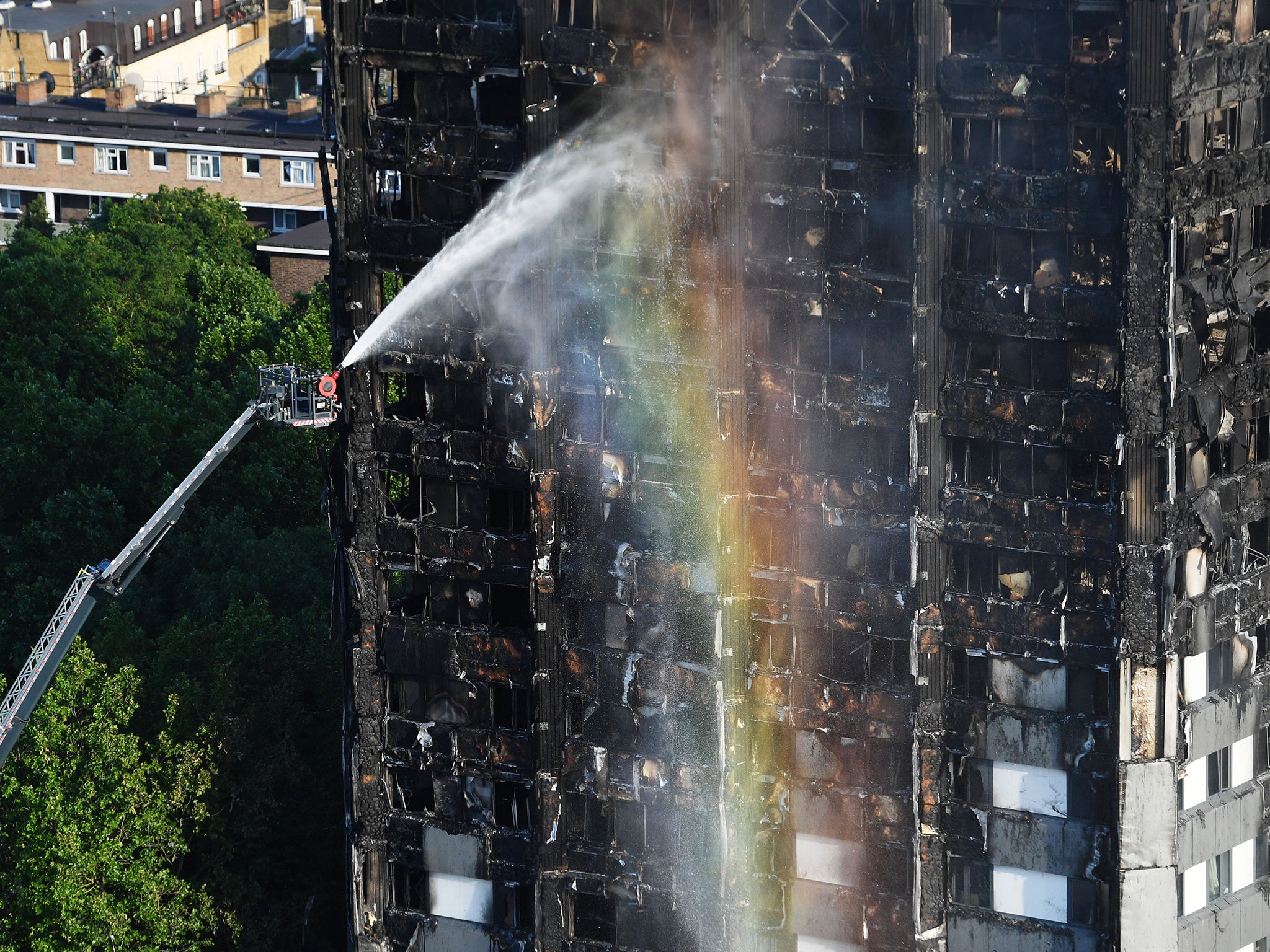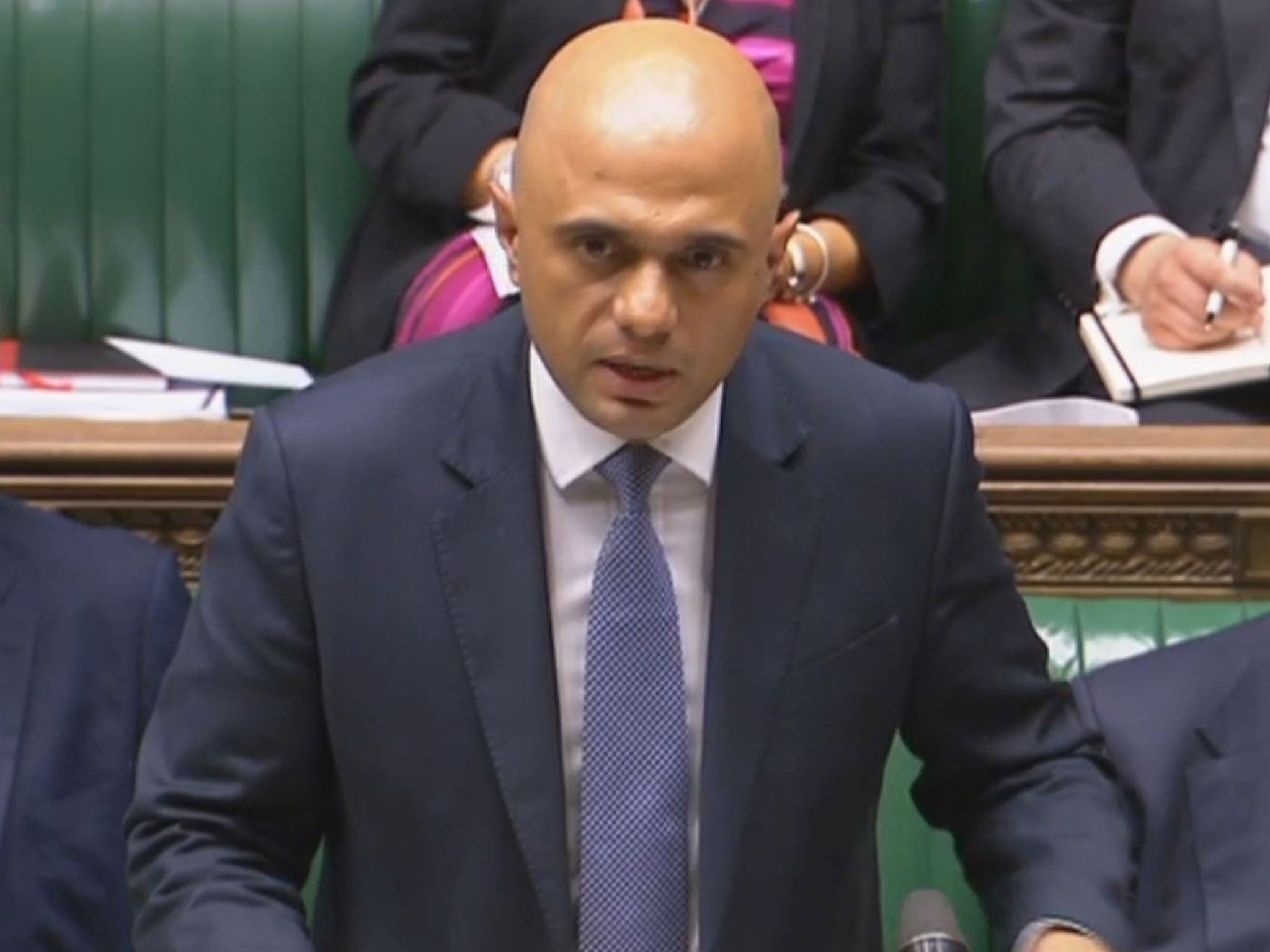Hundreds of Grenfell Tower survivors treated for PTSD as many still struggle to find new homes
Families should not be 'forced to move or make snap decisions simply so I have better numbers to report' in the Commons, Communities Secretary Sajid Javid says

Your support helps us to tell the story
From reproductive rights to climate change to Big Tech, The Independent is on the ground when the story is developing. Whether it's investigating the financials of Elon Musk's pro-Trump PAC or producing our latest documentary, 'The A Word', which shines a light on the American women fighting for reproductive rights, we know how important it is to parse out the facts from the messaging.
At such a critical moment in US history, we need reporters on the ground. Your donation allows us to keep sending journalists to speak to both sides of the story.
The Independent is trusted by Americans across the entire political spectrum. And unlike many other quality news outlets, we choose not to lock Americans out of our reporting and analysis with paywalls. We believe quality journalism should be available to everyone, paid for by those who can afford it.
Your support makes all the difference.More than 200 victims of the Grenfell Tower disaster have been referred to the NHS for treatment for post-traumatic stress disorder.
The figures released by Kensington and Chelsea Council show 220, or two thirds (66 per cent), of the 330 people screened have been referred for specialist treatment.
The council said it has invested £2.5m to ensure there is a network of support with outreach teams visiting families and residents in the community and hotels.
It comes as the Government admitted a "low" number of those who lost their homes in the blaze have been rehoused.
The Central Northwest London NHS Foundation Trust, which also has outreach teams going to hotels, along with GPs, have referred 439 people for specialist mental health treatment.
But Steven Pretty, who lived near the 24-storey west London high-rise, where at least 80 people died, said nobody has approached him to offer support after he moved out of his flat following the June 14 blaze.
"Forty yards from my living room window was a tower block that was all on fire... windows were just falling out, the crashing noises, the screams, the shouts," he told 5 News.
"I couldn't do anything that night and that's painful and I've been carrying that for the last eight, nine weeks."
Mr Pretty, 40, is now reaching out for support, and has spoken about his experience to encourage others to do the same.
"I put it off so many weeks because I just felt ashamed of myself, guilt, shock, disturbed, displaced," he said.
"I need to talk about that night."
Councillor Kim Taylor-Smith, deputy leader of Kensington and Chelsea Council, described the Grenfell tragedy as a "humanitarian crisis on a unique scale".
"There is a network of support available, including proactive work within the community and schools, a 24 NHS helpline and emotional support services provided by local community groups along with the Samaritans," she told 5 News.

The continuing mental trauma felt by those who survived the fire was revealed as Sajid Javid said the number of residents temporarily or permanently rehoused was "still low".
The Communities Secretary added he does not want to see anyone living in emergency accommodation for "any longer than necessary" but said families should not be "forced to move or make snap decisions simply so I have better numbers to report" in the Commons.
Mr Javid, providing an update to MPs following the summer recess, also called on private sector owners of tower blocks to submit cladding samples for testing.
PA
Join our commenting forum
Join thought-provoking conversations, follow other Independent readers and see their replies
Comments